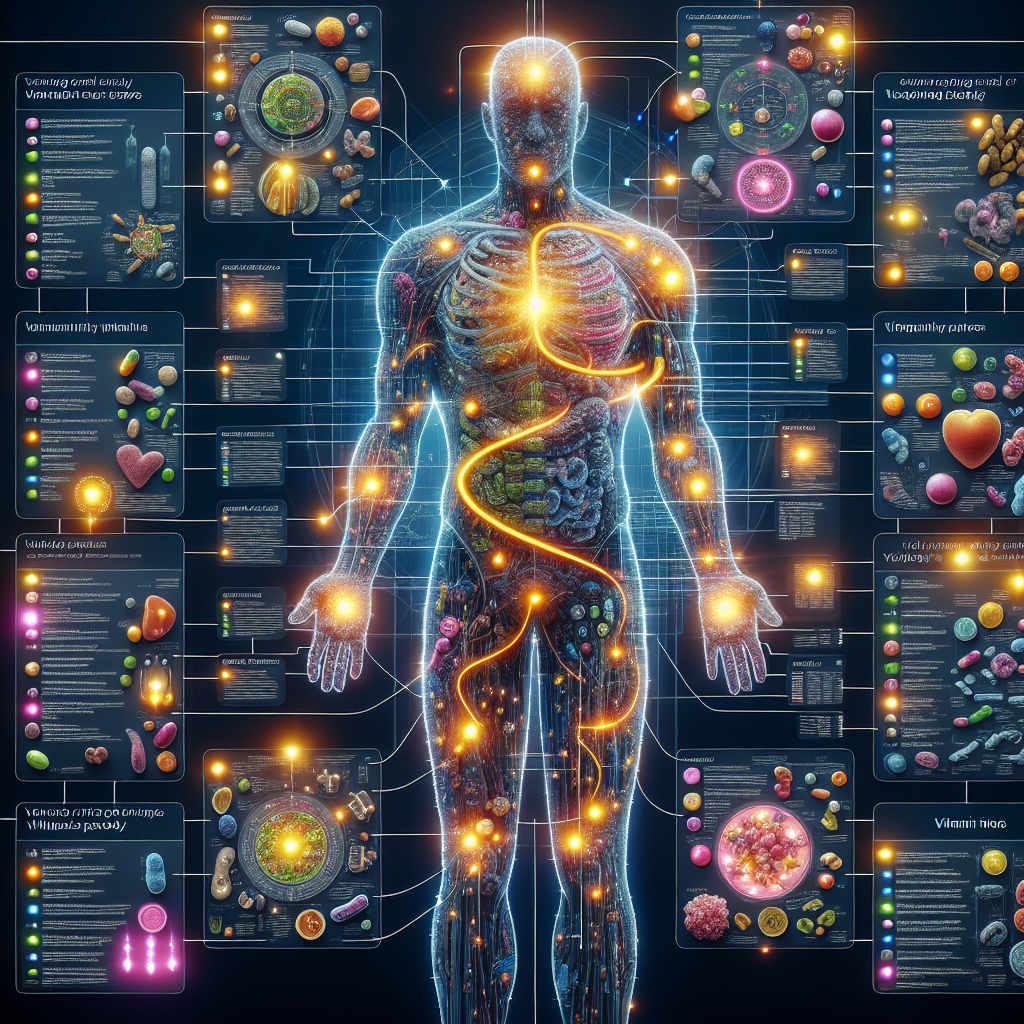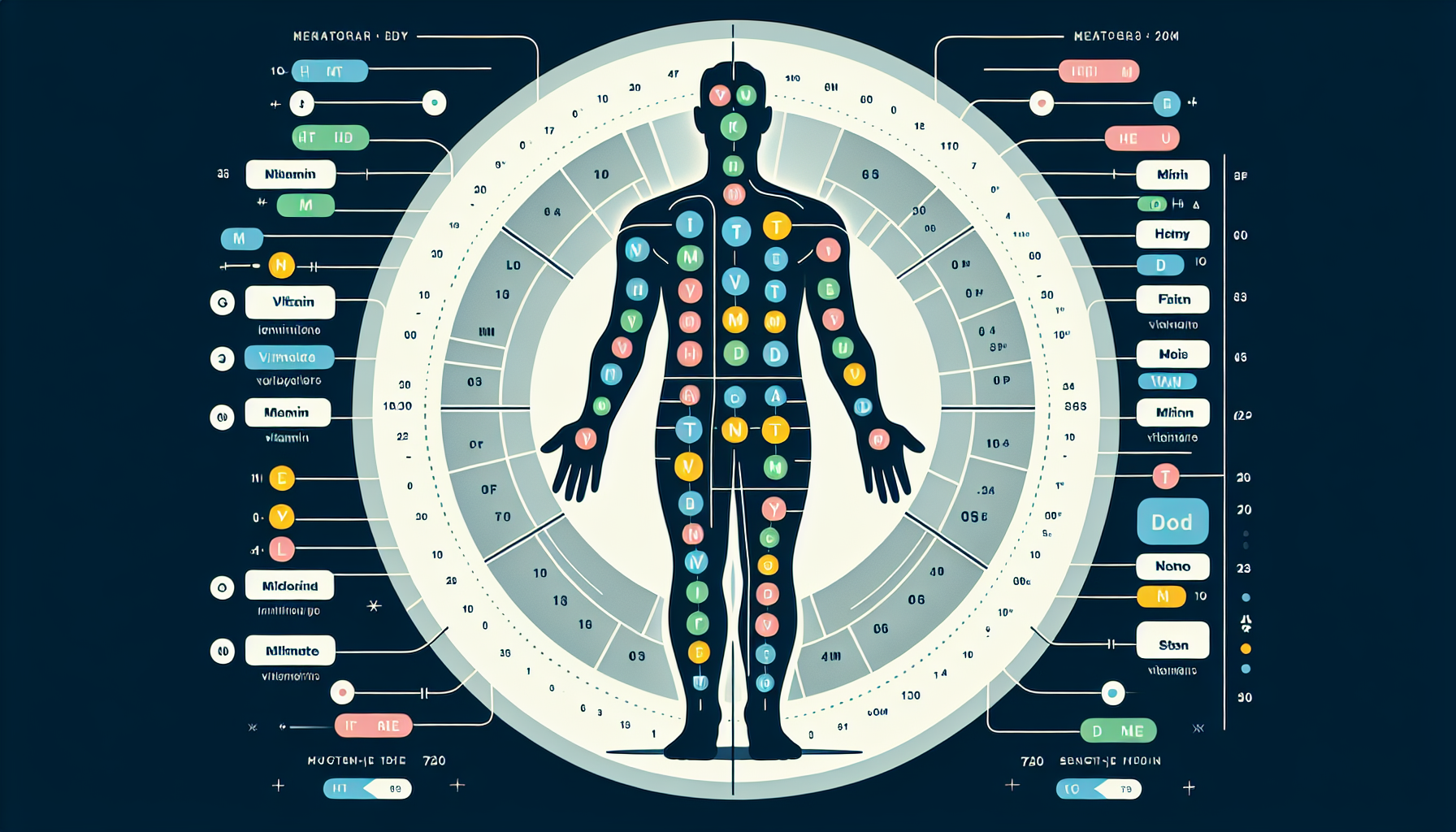Leveraging Human Design to Manage Your Vitamin Intake

Discover the power of aligning your vitamin intake with your unique Human Design. Visit My Vibrant Vitality now to unlock your path to optimal health and vitality.
Exploring Human Design to Optimize Your Vitamin and Supplement Routine
In the quest for optimal health and well-being, many individuals turn to vitamins and supplements as a means to fill nutritional gaps, boost energy levels, and enhance overall physical and mental performance. However, with the vast array of options available, determining the most beneficial regimen can be a daunting task. This is where the innovative approach of leveraging Human Design comes into play, offering a personalized roadmap to managing your vitamin intake more effectively.
Human Design is a synthesis of ancient wisdom and modern science, incorporating elements from astrology, the I Ching, Kabbalah, and the chakra system, along with quantum physics and genetics. It provides a unique genetic blueprint for each individual, detailing their strengths, challenges, and potential paths to personal and professional fulfillment. By understanding one’s Human Design, individuals can make more informed decisions about their health, including how to optimize their vitamin and supplement routine.
The first step in leveraging Human Design for vitamin management is to obtain your personal chart, which can be generated using your birth date, time, and place. This chart reveals your Type, Strategy, Authority, and Centers, offering insights into how you best interact with the world, make decisions, and where you might be susceptible to energy imbalances that vitamins and supplements can help address.
For instance, someone with a defined Spleen Center in their Human Design chart might naturally have a strong immune system but could benefit from specific supplements to support this aspect of their health during times of increased stress or environmental challenges. Conversely, an individual with an undefined Spleen might find greater benefit in a consistent regimen of immune-boosting vitamins to compensate for their inherent vulnerability in this area.
Moreover, understanding your Human Design can guide you in selecting the timing and manner of your vitamin intake. For example, Manifestors and Projectors might discover they assimilate nutrients better when taken in a relaxed state, perhaps in the evening, while Generators and Reflectors could experience optimal absorption when supplements are consumed in conjunction with physical activity or at specific times of the day that align with their natural energy cycles.
Additionally, Human Design can shed light on the psychological and emotional aspects of health, suggesting that certain supplements might not only support physical well-being but also mental and emotional balance. For instance, an individual with an open Emotional Solar Plexus might find value in magnesium or omega-3 fatty acids to support mood regulation and emotional resilience.
It’s important to note, however, that while Human Design offers valuable insights, it should complement rather than replace professional medical advice. Consulting with a healthcare provider, particularly one familiar with Human Design, can ensure that your vitamin and supplement choices are safe and tailored to your specific health needs and goals.
In conclusion, leveraging Human Design to manage your vitamin intake represents a cutting-edge approach to personalized health and wellness. By aligning your supplement routine with your unique genetic blueprint, you can enhance your body’s natural strengths, address potential vulnerabilities, and navigate towards a state of optimal health with greater precision and confidence. As we continue to explore the intersection of ancient wisdom and modern science, Human Design emerges as a powerful tool in the quest for a balanced and fulfilling life.
The Role of Human Design in Personalizing Your Nutritional Needs

Leveraging Human Design to Manage Your Vitamin Intake
In the quest for optimal health and wellness, personalization is key. The one-size-fits-all approach to nutrition and vitamin intake is rapidly becoming obsolete, as more individuals turn towards tailored solutions that cater to their unique physiological makeup. This is where the concept of Human Design comes into play, offering a revolutionary framework for understanding and managing one’s health, including the intricate balance of vitamins and nutrients essential for optimal functioning.
Human Design is a synthesis of ancient wisdom and modern science, combining elements from astrology, the I Ching, Kabbalah, the Hindu-Brahmin chakra system, and quantum physics. It provides a detailed blueprint of an individual’s energetic and biological makeup, offering profound insights into how they interact with the world, including their nutritional needs. By understanding one’s Human Design, individuals can make informed decisions about their diet and vitamin intake, ensuring that these are in harmony with their body’s natural predispositions.
The role of Human Design in personalizing nutritional needs cannot be overstated. Each person’s design is unique, with specific indications about their digestive system, energy levels, and overall health. For instance, someone with a defined Sacral center in their Human Design chart may have different energy needs and thus require different nutritional support compared to someone with an undefined Sacral center. This level of personalization extends to vitamin intake, where the absorption, utilization, and necessity of various vitamins can vary significantly from one individual to another.
Moreover, Human Design can help identify potential health vulnerabilities and guide individuals towards the vitamins and minerals that can support their well-being. For example, if a person’s chart indicates a predisposition towards stress or anxiety, incorporating vitamins B and C, known for their role in stress reduction, can be particularly beneficial. Similarly, those with energy centers that suggest a tendency towards physical endurance might benefit from increased levels of vitamins D and E, which support muscle recovery and cardiovascular health.
Transitioning from a general understanding of one’s Human Design to applying this knowledge for managing vitamin intake requires a thoughtful approach. It involves not only studying one’s design chart but also experimenting with different vitamins and observing the body’s responses. This empirical approach ensures that the adjustments made are truly in alignment with one’s unique design, leading to more effective and sustainable health outcomes.
Furthermore, leveraging Human Design for vitamin management encourages a holistic view of health. It prompts individuals to consider not just the physical aspects of nutrition, but also how these interact with their energy levels, emotional well-being, and mental clarity. This comprehensive approach can significantly enhance one’s quality of life, providing a solid foundation for long-term health and vitality.
In conclusion, the role of Human Design in personalizing nutritional needs, particularly vitamin intake, represents a significant shift towards more individualized health care. By understanding and applying the principles of Human Design, individuals can tailor their nutritional strategies to fit their unique makeup, leading to improved health outcomes and a deeper connection with their bodies. As we continue to explore and embrace the complexities of human biology and energetics, the potential for personalized nutrition and wellness strategies, grounded in the wisdom of Human Design, is boundless.
Integrating Human Design Principles for Effective Vitamin Management Strategies
In the quest for optimal health and wellness, the concept of human design offers a fascinating lens through which we can understand our unique physiological and psychological makeup. This system, which combines elements of astrology, the I Ching, Kabbalah, and the chakra system, posits that each individual has a distinct design that can guide them in making choices that align with their true nature, including decisions about nutrition and vitamin intake. By leveraging human design principles, individuals can develop effective vitamin management strategies that cater to their specific needs, promoting better health and well-being.
The foundation of integrating human design into vitamin management lies in the understanding that not everyone benefits from the same nutritional supplements in the same way. Just as our bodies and minds are unique, so too are our nutritional requirements. Human design offers insights into our energy centers, providing clues about potential deficiencies and guiding us toward the vitamins and minerals that can best support our overall health. For instance, someone with a defined spleen center in their human design chart might be more inclined towards certain deficiencies and could benefit from tailored vitamin supplementation to support that center’s optimal functioning.
Transitioning from the theoretical to the practical, the application of human design in vitamin management involves a detailed analysis of one’s human design chart. This chart, which is generated based on one’s birth data, outlines the defined and undefined centers, channels, and gates, offering a blueprint of one’s energetic and biological predispositions. By consulting with a knowledgeable human design expert, individuals can gain insights into which areas of their health might require more support, whether it’s bolstering the immune system, enhancing mental clarity, or improving metabolic health. This personalized approach ensures that vitamin intake is not only effective but also aligned with the individual’s unique design, leading to more harmonious health outcomes.
Moreover, human design encourages mindfulness and intuition in managing vitamin intake. It teaches us to listen to our bodies and to recognize the signals they send us about what they need to thrive. This intuitive approach, supported by the insights gained from one’s human design chart, empowers individuals to make informed choices about their vitamin and supplement use. It moves us away from a one-size-fits-all approach to nutrition and towards a more personalized, holistic method of care.
In conclusion, leveraging human design to manage vitamin intake represents a groundbreaking approach to personalized health and wellness. By understanding and applying the principles of human design, individuals can tailor their vitamin and supplement strategies to their unique needs, promoting better health outcomes. This method not only respects our individuality but also empowers us to take charge of our health in a more informed and intuitive way. As we continue to explore the intersection of ancient wisdom and modern science, the integration of human design into nutritional strategies stands out as a promising path to achieving optimal health and well-being.